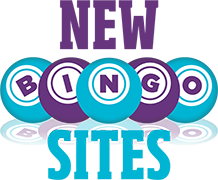- 30 Free Spins
- Mobile friendly website
- No wagering requirements
Is Bingo good for our minds?
Rating: 0/5We probably all associate playing bingo with having a bit of fun which is enhanced by the knowledge that we might actually win some real cash. But a lot of people think of the game as an unchallenging and undemanding waste of time. Well hold that thought and read on!
There have been some surprising findings from a study carried out by the University of Southampton. Researchers in their Psychology Department have discovered that Bingo is not the insignificant pastime that some people take it for.
They carried out a number of tests on bingo players and non bingo players and then compared the results. I think you’ll find them very interesting! The researchers discovered that in tests that measured memory, mental speed and their ability to absorb information from the environment, bingo players were more accurate and faster than non bingo players.
The key to these findings is that the hand-eye coordination required for bingo in combination with the limited time constraint to check numbers, exercises and improves mental agility. Researchers insist that bingo keeps the mind sharp and highlight this as being especially important to people as they get older.
The results were conclusive in showing that those of us that play bingo were quicker and more accurate than those who don’t play the game. It was very interesting to note that older players out stripped the younger ones on some of the tests, perhaps indicating that regularly getting involved in games that exercise the mind benefits our mental functioning as we grow older. However younger players tended to be more accurate and faster.
Those who do not hold bingo in very high esteem will no doubt try to dispute and discredit these findings, choosing to see the game as trivial and an unsatisfactory workout for the mind. But they are missing the crucial underlying fact that the research proves that prolonged and regular bingo playing leads to cognitive benefits.
The researchers now plan to do more tests to see if these bingo skills are transferred to other areas of mental skill. They also want to examine the area around the level of mental agility that people possess before and after they start playing bingo.
In the UK, there are around three million bingo players, with an average age of forty-nine. Hopefully this study and the growing body of research around it will help to encourage people to get involved in the game who wouldn’t previously have considered it. This research shows that It isn’t just a game for pensioners to pass the time of day whilst drinking tea and having a good old natter. It’s a way to sharpen and promote mental agility and is proving attractive to many age groups. It requires good listening skills too, together with being able to search for numbers quickly whilst sustaining a high level of concentration. So, bring on the next game!






